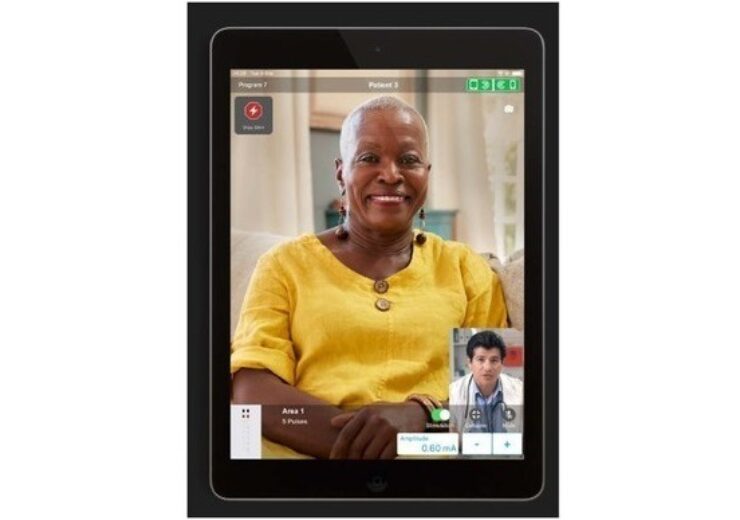The new system allows patients implanted with an Abbott neuromodulation device to communicate with their physician and remotely receive treatment in real time, regardless of location

Sample screen view of a patient-physician interaction on Abbott's NeuroSphere Virtual Clinic. (Credit: CNW Group Ltd./ Abbott)
Abbott announces the Health Canada licencing† of NeuroSphere Virtual Clinic, a remote programming technology that is the first of its kind in Canada and is compatible with Abbott’s suite of neuromodulation technologies. NeuroSphere Virtual Clinic has the potential to increase access to optimal treatment for patients living with chronic pain, Parkinson’s disease, or essential tremors who might otherwise have difficulty receiving care from their healthcare provider due to location or being unable to travel to seek care.
Abbott’s NeuroSphere Virtual Clinic gives patients the flexibility and comfort of receiving care anywhere by connecting with their doctor via secure in-app video chat and an integrated remote programming feature. This feature enables clinicians to prescribe new treatment settings remotely to the patient’s neurostimulation device using the clinician programmer app and a new, simple, and secure remote care connection.
In Canada, it is estimated that more than 6 million people live with chronic pain, almost 100,000 people live with Parkinson’s disease, and almost 2 million people live with an essential tremor. Many of these people who don’t live close to a healthcare centre have difficulty accessing care due to the inability to see their doctor in-person. They are often challenged by the time associated with the trip, and/or the availability of a caregiver to help with their travel. In addition to the time implications, patients and caregivers may experience considerable travel-related costs and reduced employment wages. This is particularly true for those living in rural, northern, and remote parts of the country.
“Without alternatives to in-person programming, many of these patients may delay or forego care, particularly those who face a travel burden,” said Alfonso Fasano, M.D., Ph.D., with Krembil Brain Institute at Toronto Western Hospital, part of the University Health Network. “Fortunately, innovative virtual healthcare options are changing the treatment landscape, ultimately extending care beyond clinic walls. Remote programming is an important new option that allows patients to communicate with their physicians virtually to ensure proper device settings and functionality. This brings the convenience of connected care to neurostimulation therapy, giving patients the ability to manage their therapy in a way that fits their personal needs.”
“For more than a decade, Abbott has been evaluating the treatment hurdles neuromodulation patients faced,” said Pedro Malha, vice president, neuromodulation, Abbott. “During this time, we have diligently worked to find better ways of connecting patients to their doctors. The launch of NeuroSphere Virtual Clinic in Canada exemplifies Abbott’s ability to put science and innovation to work, delivering solutions to help people live their best lives.”
The ongoing evolution of Abbott neuromodulation technologies highlights the commitment to patient-centered research integrated with cutting-edge technologies to go beyond physical symptom relief and improve the lives of people with neurological disorders. Abbott’s NeuroSphere Virtual Clinic was first launched in the United States in March 2021.
Source: Company Press Release
